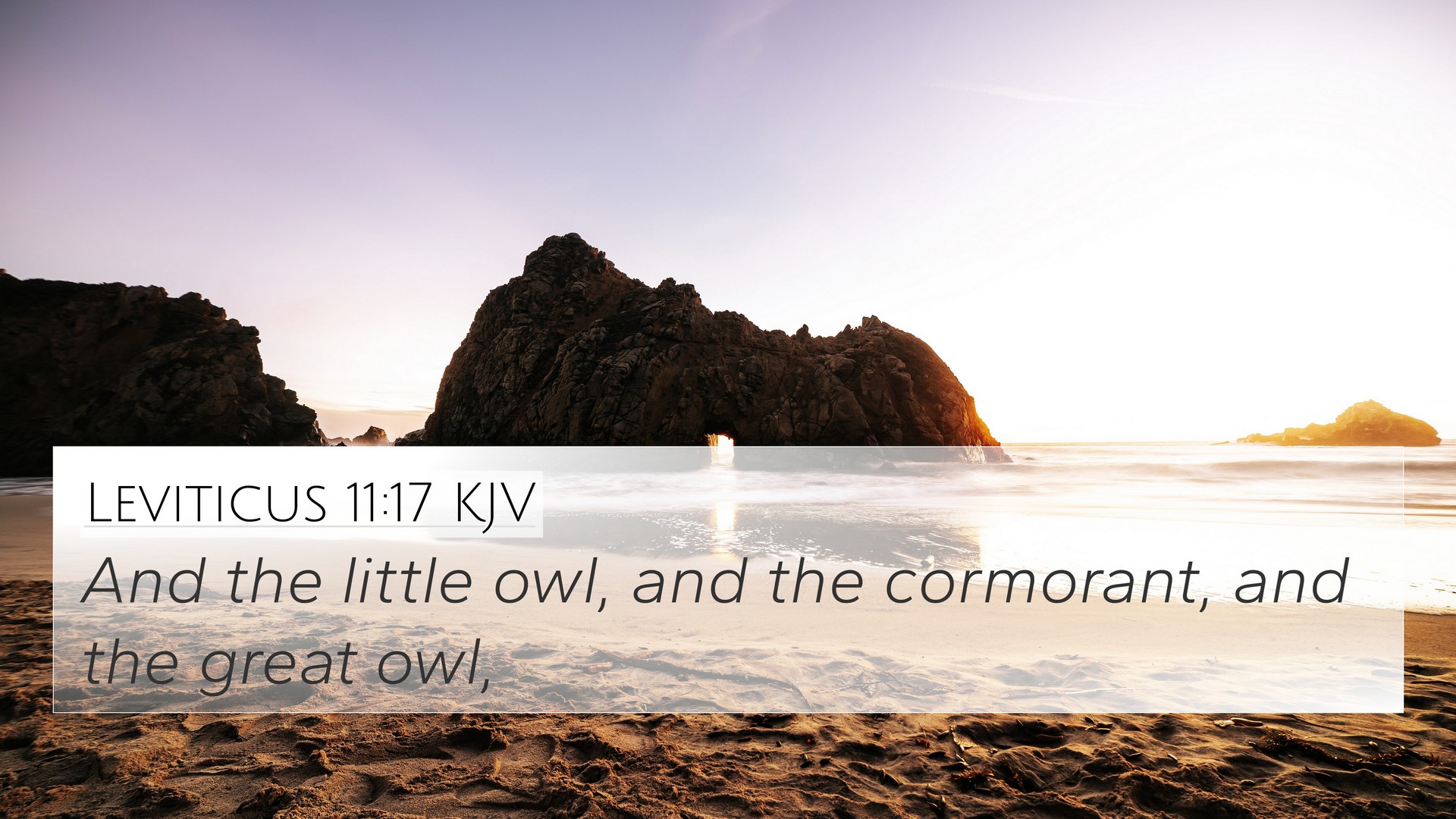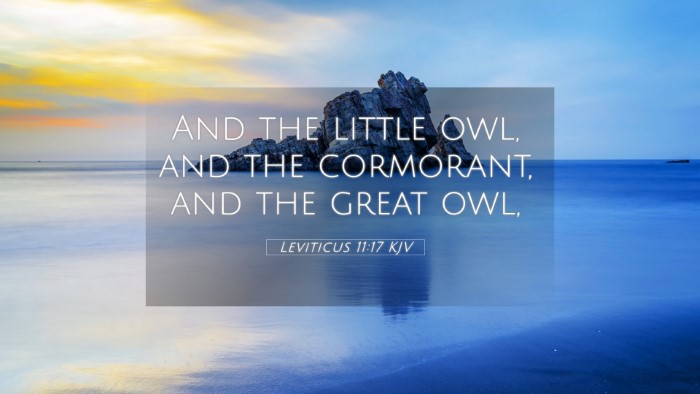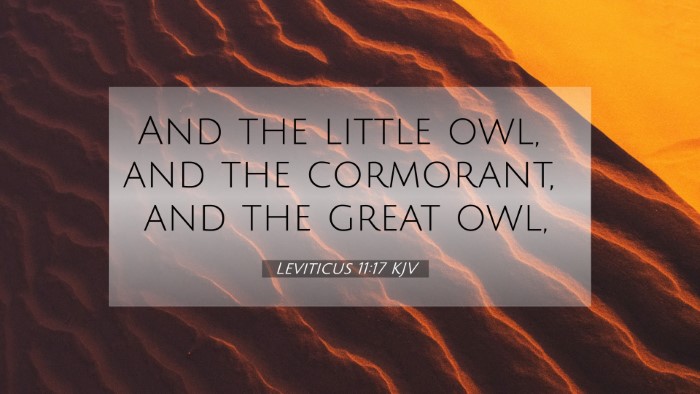Understanding Leviticus 11:17
Leviticus 11:17 states: "And the owl, and the night hawk, and the cuckow, after his kind." This verse is part of a larger section in Leviticus that outlines the dietary laws given to the Israelites. The significance of this verse extends beyond mere dietary restrictions; it carries profound implications for spiritual and communal life among God's people.
Context of Leviticus 11
In Leviticus 11, God provides a set of laws regarding clean and unclean animals which the Israelites are to observe. These regulations serve to distinguish the people of God from others and instill a sense of holiness. The birds mentioned in Leviticus 11:17 are identified as unclean and are forbidden for consumption.
Commentary Insights
-
Matthew Henry's Commentary:
Matthew Henry emphasizes the purpose of these dietary laws, which highlight spiritual cleanliness and obedience to God. He notes that the list of unclean birds, including the owl and the night hawk, served as constant reminders of God's holiness and the need for His people to maintain a distinction from the surrounding nations.
-
Albert Barnes' Notes:
Barnes focuses on the symbolism behind the birds listed as unclean. He explains that these birds often exhibit characteristics associated with darkness and night, which could symbolize spiritual darkness. By avoiding such creatures, the Israelites reinforce their commitment to living in the light of God's commandments.
-
Adam Clarke's Commentary:
Clark highlights that these dietary regulations were not only ceremonial but also served practical purposes. He points out that many unclean birds are scavengers or predators, thus unfit for consumption, contributing to the health and well-being of the community.
Spiritual Significance
The laws regarding clean and unclean animals, including those in Leviticus 11:17, are deeply rooted in the principle of holiness. This context invites reflection on the nature of purity, both in physical and spiritual terms. God's people are called to remember that their diet reflects their covenant with Him, which symbolizes their greater commitment to live a life pleasing to God.
Cross-References
Leviticus 11:17 can be cross-referenced with other scriptures to understand the broader themes of cleanliness, separateness, and holiness in the Bible. Notable connections include:
- Deuteronomy 14:15-18: A reiteration of clean and unclean birds.
- Isaiah 66:17: A prophetic declaration regarding unclean creatures and their ultimate judgement.
- Acts 10:12-15: Peter's vision where God declares all creatures clean, indicating a shift in understanding.
- Matthew 15:11: Jesus explains the importance of what comes from the heart rather than dietary laws.
- Luke 11:39-41: Jesus chastises the religious leaders for focusing on external cleanliness rather than internal righteousness.
- Romans 14:14: The apostle Paul clarifies that no food is intrinsically unclean in itself, emphasizing a heart attitude.
- 1 Timothy 4:4-5: Paul reiterates that all God's creations are good, when received with thanksgiving.
Exploring Thematic Connections
The thematic connections between Leviticus 11:17 and other verses highlight the ongoing dialogue within the Bible regarding holiness, cleanliness, and the nature of God's law. These connections can guide one in exploring the idea of what it means to live a life set apart for God:
-
Concept of Holiness:
The call to holiness is emphasized in 1 Peter 1:16, reflecting the overarching theme resonating from Levitical laws into the New Testament.
-
Spiritual Purity:
James 1:27 stresses pure religion involves keeping oneself unstained from the world, parallel to the separation of clean and unclean.
-
The Reality of Grace:
The New Covenant introduces grace, as seen in Galatians 5:1, which frees believers from the regulations of the Law.
Conclusion
Studying Leviticus 11:17 through the lens of various commentaries and scripture cross-references unveils profound truths about God’s laws and the nature of holiness. It invites believers to reflect on their spiritual lives and what it means to be in covenant with God, navigating the complexities of dietary laws transformed by New Testament teachings. The connections between Bible verses serve as powerful tools for deeper understanding and enhanced biblical insight.
Further Study and Resources
For those interested in exploring cross-referenced themes in the Bible further, consider utilizing tools for Bible cross-referencing, such as:
- Bible concordances
- Bible cross-reference guides
- Cross-reference Bible study methods
Leveraging these resources can enhance your understanding of the Scriptures and encourage a more profound examination of the connections between verses.


